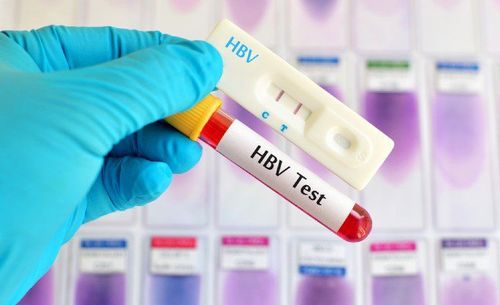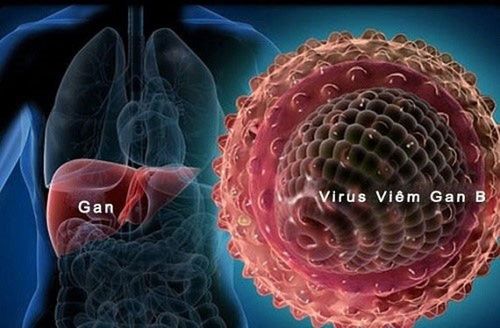This is an automatically translated article.
The article was professionally consulted by MSc Vu Tan Phuc - Gastroenterologist - Department of Medical Examination & Internal Medicine, Vinmec Phu Quoc International General Hospital.Hepatitis B is an infectious disease caused by the HBV virus. If not diagnosed and treated, the disease can severely affect liver function, especially cirrhosis and liver cancer. Therefore, blood tests to diagnose hepatitis B play an important role in early diagnosis and timely treatment of this disease.
1. What is Hepatitis B?
Hepatitis B is the most common liver-related infectious disease worldwide. The causative agent is the hepatitis B virus (HBV), which silently attacks and damages liver cells.This virus is transmitted in 3 ways: through blood, through unprotected sex, from an infected mother to her baby during pregnancy or during labor or delivery.
Currently, hepatitis B has a vaccine to prevent and treatments for infected people are also underway and yielding positive results.

2. Blood test to diagnose hepatitis B
Current hepatitis B test markers include: HBsAg, Anti-HBs (HBsAb), HBeAg, Anti-HBe (HBeAb), Anti-HBc, Anti-HBc IgM.2.1. HBsAg . test
To diagnose hepatitis B, HBsAg (the surface antigen of the HBV virus) is the decisive test. To definitively conclude whether a patient is infected with the hepatitis B virus, the first step is to do an HBsAg test. There are two types of hepatitis B virus surface antigen (HBsAg) test: rapid (qualitative) and quantitative.Qualitative test that shows whether the patient has the B virus or not, helping to diagnose the disease. Quantitative tests show how much or how little antigen levels are, which is more meaningful in monitoring treatment than in diagnosing disease. A positive or reactive result means that the patient has hepatitis B, whether acute or chronic. Conversely, if HBsAg is negative the patient is not infected with B.
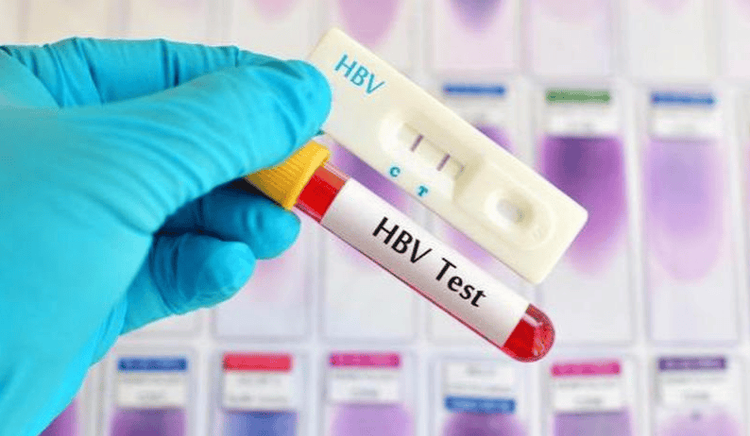
2.2. Anti-HBs . Test
The Hepatitis B Anti-HBs (also known as HBsAb) test is a test that looks for antibodies against the HBsAg surface antigen. If the patient has ever had hepatitis B and recovered or the patient has received hepatitis B vaccine, the HBsAb result will be positive, meaning that the patient has immunity to this virus. Anti-HBs results > 10 mUI/ml are considered protective.2.3. HBeAg . test
The hepatitis B test HBeAg is actually an antigenic fragment on the viral capsid. A positive HBeAg indicates that the virus is multiplying and is highly contagious. This test is proof that the hepatitis B virus is active. A negative HBeAg test result means that there are two possibilities: the virus is dormant or the virus is mutated.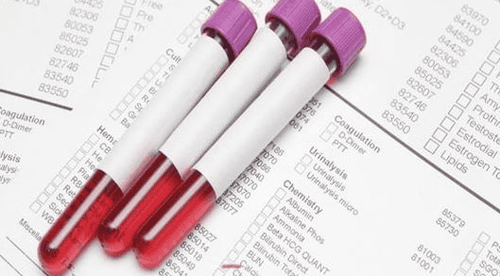
2.4. Anti-HBe . Test
Anti-HBe is an anti-HBeAg antibody. If the Anti-HBe test is positive, the patient is partially immune. Anti-HBe test results are negative, indicating that the patient's body is not immune to hepatitis B virus.2.5. Anti-HBc . test
HBcAg is the core antigen and Anti-HBc (HBcAb) is the antibody against this antigen. Usually, this type of antibody will appear very early and stay forever in the patient's body. Therefore, this type of hepatitis B test has a role to help assess whether a patient has ever been exposed to the hepatitis B virus.2.6. Anti-HBc IgM . Test
Anti-HBc IgM is an IgM type HBcAb antibody. IgM is an antibody that only appears in acute disease, so Anti-HBc IgM helps diagnose hepatitis B in acute inflammation or acute exacerbation of chronic hepatitis.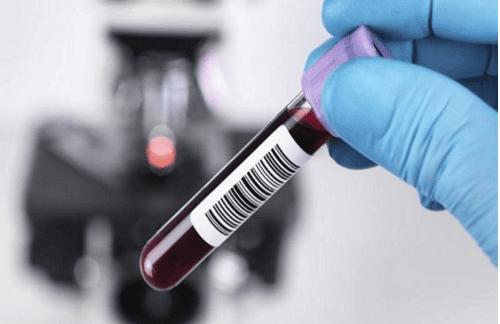
3. Order of blood test to diagnose hepatitis B
Always do a surface antigen (HBsAg) test first. If HBsAg is negative, it can be confirmed that the patient does not have hepatitis B.In addition, if the doctor wants to determine if the patient has ever been exposed to the hepatitis B virus, an additional Anti-HBc test is indicated ( HBcAb).
In case the doctor needs to know if the patient is immune or not or if he needs to be vaccinated against hepatitis B, he should test for Anti-HBs. A positive Anti-HBs result means that the patient is already immune to hepatitis B and does not need to be vaccinated. On the contrary, negative Anti-HBs means that the patient is not immune to hepatitis B and needs vaccination to prevent the disease.
If HBsAg is positive, the doctor needs to confirm it with a series of other diagnostic tests for hepatitis B. Besides, it is necessary to appoint more biochemical and hematological tests, the aim is to evaluate liver function. Hepatitis B markers that need to be completed include:
Quantification of HBsAg Anti-HBs (HBsAb) HBeAg Anti-HBe (HBeAb) Anti-HBc Anti-HBc IgM. The pair of HBeAg and Anti-HBe tests should be sufficient to analyze the following 4 possibilities:
HBeAg (+) and Anti-HBe (-): Virus is multiplying and hepatitis is progressing, transmission ability strong. HBeAg (-) and Anti-HBe (+): Virus is inactive, the patient has partial immunity, the ability to spread is reduced. Besides, this can also be a mutant form of hepatitis B virus. HBeAg (+) and Anti-HBe (+): Balanced antigens and antibodies or due to immune complexes, requiring further monitoring. HBeAg (-) and Anti-HBe (-): This may be the window stage of seroconversion. Finally, the pair of Anti-HBc and Anti-HBc IgM tests to identify patients with acute or chronic hepatitis.
Hepatitis B is a disease with unpredictable development and dangerous complications if the virus is not well controlled. Depending on your condition, your doctor will assign necessary evaluation tests to decide on treatment and monitor the course of hepatitis B treatment. Therefore, when hepatitis B virus infection is detected, , you need to go to a medical facility specializing in hepatobiliary disease or a large hospital to be examined and diagnosed with a specific medical condition.
Please dial HOTLINE for more information or register for an appointment HERE. Download MyVinmec app to make appointments faster and to manage your bookings easily.







